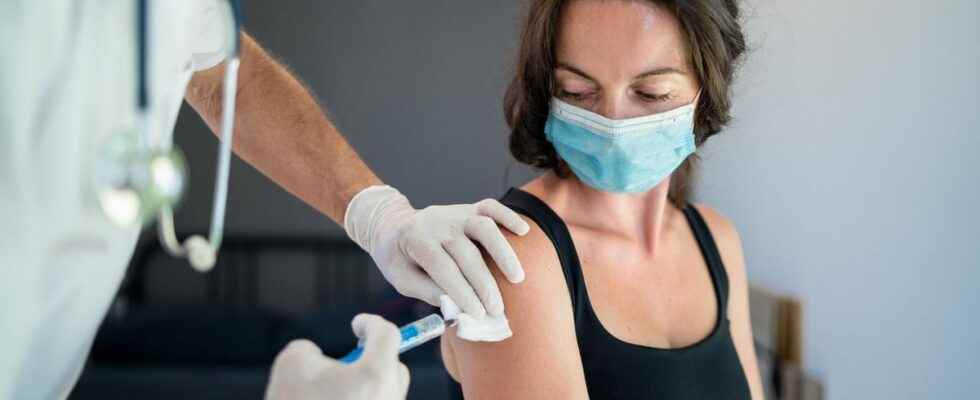Published on
Updated
Reading 1 min.
in collaboration with
Dr Gérald Kierzek (Medical Director of Doctissimo)
Medical validation:
July 16, 2022
Faced with the outbreak of Covid-19 cases, the High Authority for Health issued new recommendations on Wednesday. She recommends that pregnant women and fragile people benefit from a new booster dose.
Hospitalizations, new cases, deaths… The coronavirus continues to wreak havoc. In this context, the High Authority for Health issued a new opinion on Wednesday July 13, relating to the administration of a new booster dose. Only part of the French are concerned.
New vaccine dose: who are the people concerned?
In its press release, the HAS lists the people under 60 who must be vaccinated as a priority. It’s about :
- All people who are fragile and at risk of a serious form of Covid-19 (especially those with comorbidities, such as asthma, diabetes, hypertension, obesity, etc.);
- Pregnant women, who are invited to receive this additional dose “from the first trimester of pregnancy”;
The HAS also recommends “a cocooning strategy for people living in the environment or in regular contact with immunocompromised or vulnerable people, who can receive an additional booster dose if they wish”.
Finally, the organization specifies that all people at high risk and suffering from pathologies – whatever their age – can receive a new booster dose. They must also benefit from appropriate medical care.
“This targeted HAS strategy is logical. People at risk and/or suffering from immunosenescence indeed need to be “reboosted”, hence the interest of this reminder”says Dr. Kierzek.
Consult a GP online
Vaccine: when to take this new dose?
The HAS also emphasizes the importance of respecting vaccination deadlines. Between two booster doses, a certain period of time must indeed elapse.
He’s from :
- 3 months for people aged 80 and over, residents of nursing homes and USLDs and immunocompromised people;
- 6 months for others.
To develop these recommendations, the scientific body specifies that it relied on the “latest data available”, citing in particular “French epidemiological data”.
